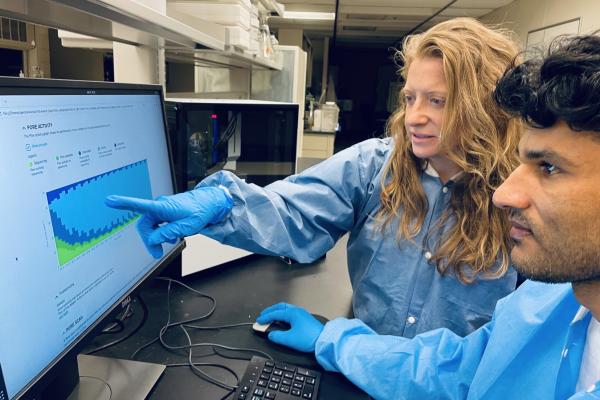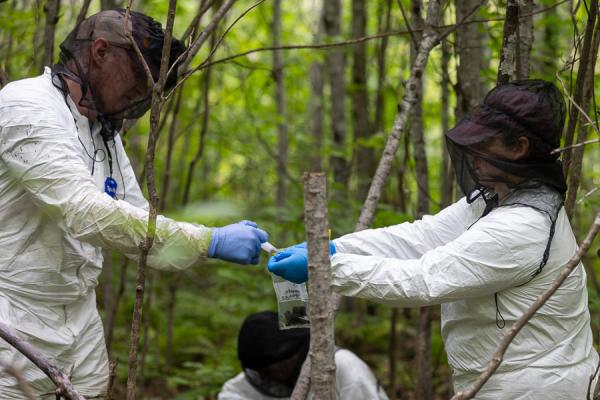Newly funded study aimed at reducing risk, improving interventions for canine lymphoma
February 13, 2024

Thunder, a golden retriever whose lymphoma diagnosis was a catalyst for the research in the Modiano lab that led to the new study. Photo courtesy Rhonda Hovan.
Researchers led by Dr. Jaime Modiano from the College of Veterinary Medicine (CMV) and Aaron Sarver from the Masonic Cancer Center received a $500,000 grant from the Morris Animal Foundation to study new approaches to reducing the impact of lymphoma on companion dogs. Cancer is a major cause of death in dogs, with malignant lymphoma being a significant contributor. While research has made strides in advancing our understanding of this cancer and new drugs have been recently approved, the outcomes for dogs that are diagnosed with certain types of lymphoma haven't improved much in the past 40 years. This body of work aims to change that by taking a unique approach that the research team characterizes as “test and intervene.”
For this study, the researchers will work to create a test that can confidently categorize dogs as low- or high-risk for the disease. Armed with that capability, the next phase of the work will involve developing interventions that are targeted to those at risk. With accurately targeted interventions, side effects are decreased, and the chances for a therapy’s success are increased.
The researchers’ primary focus is diffuse large B-cell lymphoma (DLBCL), the most common type of lymphoma in dogs. They hypothesize that the risk for canine malignant lymphoma is increased in certain dogs for whom aspects of their biology at the cellular level create a more permissive environment—that is, an environment more conducive to cancer growth. They propose to use artificial intelligence to identify patterns among tiny pieces of DNA in blood that are associated with lymphoma-permissive environments.
The researchers will combine samples from multiple sources, including patients from the University of Minnesota Veterinary Medical Center, the Morris Animal Foundation Golden Retriever Lifetime Study, and about 150 healthy adult companion dogs from families across the United States. They will use these samples to confirm the genetic patterns that arise before cancer develops, determine how common the lymphoma-permissive environment is, and assess the clinical benefits of the test.
As Modiano describes, "Once a cancer is diagnosed, the disease has overcome virtually all of the body's mechanisms to contain it. That leaves us in a precarious situation, because advanced cancers are highly adaptable and can readily circumvent most of our treatments.” Because of that, an accurate understanding of risk, as the test will provide, is crucial to advancing the fight against cancer both for dogs and for humans. Modiano notes, “We believe the only good cancer is the one that never happens, and that safe and effective, strategic prevention provides the best opportunity to reduce the impact of cancer in our society."


